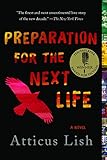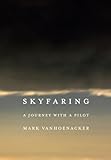1.
 I read Stacey D’Erasmo’s Wonderland in a hotel room in Saint Paul. This was a couple of months back, 13 months into a book tour that seemed by then like it might not ever end. (Not a complaint — I love my job, and am immensely grateful for it — but perhaps we can all agree that being away from home and loved ones for long periods can wear on a person, and leave it at that.) By the time I reached Saint Paul, I’d been feeling badly for awhile about how few books I was reading. Even the most grueling days usually contained a small amount of downtime. There were days where I spent an awful lot of time just sitting there in airplane seats and waiting around in airports and idling alone in hotel rooms, all places that should theoretically lend themselves to getting some reading done.
I read Stacey D’Erasmo’s Wonderland in a hotel room in Saint Paul. This was a couple of months back, 13 months into a book tour that seemed by then like it might not ever end. (Not a complaint — I love my job, and am immensely grateful for it — but perhaps we can all agree that being away from home and loved ones for long periods can wear on a person, and leave it at that.) By the time I reached Saint Paul, I’d been feeling badly for awhile about how few books I was reading. Even the most grueling days usually contained a small amount of downtime. There were days where I spent an awful lot of time just sitting there in airplane seats and waiting around in airports and idling alone in hotel rooms, all places that should theoretically lend themselves to getting some reading done.
Then I had an irritating couple of days on Twitter, which sparked the somewhat obvious realization that if I took a week off from Twitter I’d have more time in which to read, so I logged off in the Saint Paul hotel room and haven’t been back since. I wouldn’t have said that I’d been spending much time on Twitter, but in its absence, there seemed suddenly to be an immense amount of space around me. I picked up two novels at the bookstore down the street and read them in two days. Wonderland was one of them. It’s an exceptionally well-written novel. The plot concerns an aging musician on what may or may not turn out to be her last tour.
“What made you want to write about actors?” people kept asking me that month, in audience Q&As.
“Well,” I kept saying, “I’m interested in film and theatre, and I wanted to write about what it means to devote your life to your art, the costs and the joys of that…” and then I read Wonderland and saw that D’Erasmo wanted to write about what it means to devote your life to your art too, but she kept that the focus of the entire novel, and it makes for a razor-sharp, unsparing book. She captures both the joys and the terror, the grind and the exaltation.

 Others: I read Hanya Yanagihara’s A Little Life on a brief interlude between tours. It moved me in a way I hadn’t been moved by a book in a while. There was a sense of having encountered a rare masterpiece, also a sense of having been burnt to the ground. I expect it will live on my shelves forever, but I don’t think I could bear to read it again. Earlier in the year, on airplanes and in other hotel rooms, I read Atticus Lish’s Preparation for the Next Life. It’s a love story set in a marginal New York City, involving an undocumented immigrant and an ex-soldier with PTSD. It’s harrowing, extremely violent, and extraordinary. What all three of these novels have in common is that they remind me of nothing else I’ve ever read.
Others: I read Hanya Yanagihara’s A Little Life on a brief interlude between tours. It moved me in a way I hadn’t been moved by a book in a while. There was a sense of having encountered a rare masterpiece, also a sense of having been burnt to the ground. I expect it will live on my shelves forever, but I don’t think I could bear to read it again. Earlier in the year, on airplanes and in other hotel rooms, I read Atticus Lish’s Preparation for the Next Life. It’s a love story set in a marginal New York City, involving an undocumented immigrant and an ex-soldier with PTSD. It’s harrowing, extremely violent, and extraordinary. What all three of these novels have in common is that they remind me of nothing else I’ve ever read.
2.
 Sometimes you encounter the perfect book for a given moment, and so I felt when I picked up Mark Vanhoenacker’s Skyfaring: A Journey with a Pilot. When he isn’t writing, Vanhoenacker flies 747s in and out of London. I’d come across his work in the form of a gorgeous essay about flight that ran in The New York Times, and was delighted to realize that the essay was an excerpt from a longer work. Part of why I picked up the book was that I used to love flying, and by autumn of this year I dreaded it, and I wanted very much to love it again.
Sometimes you encounter the perfect book for a given moment, and so I felt when I picked up Mark Vanhoenacker’s Skyfaring: A Journey with a Pilot. When he isn’t writing, Vanhoenacker flies 747s in and out of London. I’d come across his work in the form of a gorgeous essay about flight that ran in The New York Times, and was delighted to realize that the essay was an excerpt from a longer work. Part of why I picked up the book was that I used to love flying, and by autumn of this year I dreaded it, and I wanted very much to love it again.
I’ve never been a nervous flyer — I feel far safer on airplanes than I’ve ever felt in a car — but the thing with airplanes is that there are too many other people on them, extended business travel is exhausting, being herded like a sheep is exhausting too, and, well, let’s be honest here, exhaustion can spark a certain low-level misanthropy when one’s crammed in with others at close quarters. When I was lucky enough to get a window seat I still found unspeakable beauty in the sight of the world from 30,000 feet, but by October, which is to say sometime around my 100th event for Station Eleven, the inevitable small tics and inconsequential bad habits of others were becoming all but unbearable to me: the woman sitting across the aisle, loudly smacking her lips while she ate a cookie and then slurpily licking each of her fingers in turn, for example; the guy in the row in front of me who apparently never learned how to blow his nose and thus found it necessary to sniffle every three seconds, for five hours, at a decibel level too high to drown out with my headphones; the business travelers competing to see who could tell the most boring flight stories. (“So then by the time we get to Atlanta, the heat’s not working at all and it’s 50 degrees on the plane.”) Etc. I turned up the music and tried to disappear.
But Skyfaring is a love letter to flight, to a profession, and reading it was a balm. Vanhoenacker slips easily between poetic meditation into the nature of travel and technical explanations of the mechanisms of the 747, and I found all of it fascinating. It is a delight to encounter someone so unabashedly enamored of the romance of his profession. On a flight bound for southern Africa, he gives a position report to the controller:
‘Roger,’ says the controller. ‘Next report the equator.’
I feel a shiver of surprise; I still can’t quite believe it’s part of my job to announce that we’ve crossed into the skies of the other half of the world. I try to imagine the old days of the ocean liners, when crossing the equator, the first of our grand marks on the sphere, was still understood as momentous, how on deck, sparkling glasses would be raised.
The book’s meditative pacing isn’t dissimilar to the rhythms of flight itself, to the way landscapes gradually unspool far below. There’s tremendous pleasure in coming across the explanations for aspects of flight I’d never quite understood – the gorgeous phenomenon I’ve seen a couple of times on long flights over the Pacific, for instance, where a strip of night hangs suspended on the horizon between sections of daylight — and equally fascinating to catch a glimpse into the closed world of the cockpit. It was easier, after reading it, to forget my exhaustion and the small annoyances of the world and lose myself again in the beauty of the flight.
More from A Year in Reading 2015
Don’t miss: A Year in Reading 2014, 2013, 2012, 2011, 2010, 2009, 2008, 2007, 2006, 2005
The good stuff: The Millions’ Notable articles
The motherlode: The Millions’ Books and Reviews
Like what you see? Learn about 5 insanely easy ways to Support The Millions, and follow The Millions on Twitter, Facebook, Tumblr.










